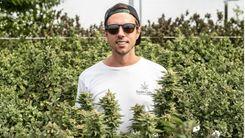Cannabis and Integrative Dentistry: New Frontier of Oral Health in Brazil
Based on evidence and a humanized approach, integrative dentists envision an active role in the medicinal cannabis market
Published on 08/04/2025

Soon we will generate a very high demand, considering how large the market is and how incredibly prosperous it already is,” said Cristina Gottlieb during the 4thBMCC. Image: Canva Pro
The application of medicinal cannabis has been expanding in various health specialties and has provided constant discoveries and advances in dentistry. Control of chronic orofacial pain, bruxism, inflammatory processes, and healing are some of the treatments where the plant has shown potential.
Nevertheless, among the 441 thousand dentists registered with the Federal Dentistry Council (CFO), it is estimated that less than 1% of dentists currently prescribe plant derivatives, according to the Regional Dentistry Council of São Paulo (CRO-SP).
For CRO-SP, this scenario reinforces the challenge of expanding the category's training and proposes that the endocannabinoid system be studied from undergraduate studies. For this reason, professionals in the so-called integrative dentistry see enormous growth potential in this scenario — both in the clinical and market fields.
“Unfortunately, we do not see the language of cannabis in dentistry, but I believe this is a gap. Soon we will generate a very high demand, considering how large the market is and how incredibly prosperous it already is,” said Cristina Gottlieb, integrative dentist and president of the Brazilian Society of Integrative Systemic Dentistry (SBOSI), during the 4th Brazilian Medicinal Cannabis Congress.
The specialist's optimistic forecast is supported by robust data. According to the 3rd Medicinal Cannabis Yearbook, prepared by the consultancy Kaya Mind, the sector moved R$ 853 million in Brazil in 2024 — a 22% growth compared to the previous year. The projection is that the volume will reach the R$ 1 billion mark by the end of 2025.
This progress is accompanied by an expansion of product offerings: currently, more than 2,150 cannabis-based items are available in the country, with about 1,900 through imports.
Faced with the growing interest of the category, the CFO stated, in a note sent to the report, that professionals interested in prescribing cannabidiol should seek specific training in the area. Although very promising, the compound — like any other medication — can cause side effects, especially when combined with other substances.
Check out the interview with Cristina Gottlieb during the Congress:









